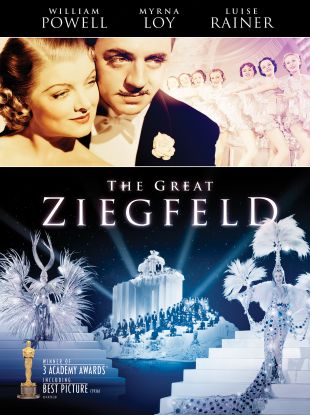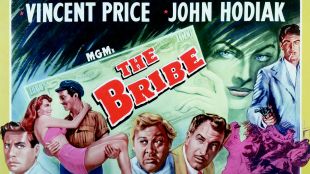Robert Z. "Pop" Leonard was a highly successful contract director at MGM, to such extent that critical appreciation of his work is practically nonexistent or of a negative kind. Nevertheless, the transparency of Leonard's work conceals a skilled and talented artisan of the highest order, and several of his films rate as classics and remain popular favorites decades after they were made. Born in Chicago, Leonard began as a stage actor, making his film debut in 1908 at the Selig Polyscope studios in Chicago; his directing career began in 1913 at Rex, a former independent then operating as a unit within Universal. Leonard's early films were comedies, often starring Leonard himself as a "boob" or an ethnic Swedish caricature. From the time vaudeville star Mae Murray arrived in Hollywood in 1916, Leonard gradually became her principal director, he abandoned his own career as a movie actor by 1918, but did make unbilled cameo appearances in later films.
Murray's headstrong behavior and open contempt of the studio bosses at Famous Players-Lasky (i.e., Paramount) kept both of them on a slippery slope in this period, but her great popularity with audiences likewise kept the Murray/Leonard team employed. In 1919, they were married, and in 1921 co-founded Tiffany Productions with producer Maurice H. Hoffman specifically to make Murray's films, then distributed through Metro. Murray became Metro's most popular female star -- Peacock Alley (1922) was an enormous hit -- and when Metro merged into Metro-Goldwyn-Mayer in 1924, Murray and Leonard left Tiffany to become contract artists with MGM; Tiffany continued as a studio for close to another decade. Their marriage, however, didn't survive the transition, and the last of their 24 films together was Circe the Enchantress (1924).
Mae Murray managed to get on the bad side of Louis B. Mayer, and by 1927 had quit MGM. But Leonard stayed for the next 30 years and -- not surprisingly, given his experience with Murray -- established himself as a director who could handle difficult talent. Leonard made pictures with Marion Davies and Norma Shearer, including Let Us Be Gay (1930) and Strange Interlude (1932) with Shearer; he also directed Greta Garbo's first MGM screen test, although the only film he made with her was the confusing Susan Lenox: Her Fall and Rise (1931). The best-known Leonard film of this period -- and one of his finest films overall -- was the Joan Crawford vehicle Dancing Lady (1933).
In the mid-'30s, Leonard truly hit his stride as a director, making the fine "A" pictures A Tale of Two Cities (1935) with Robert Donat and The Great Ziegfeld (1936), which took the Best Picture Oscar for that year; his version of Pride and Prejudice (1940) starring Laurence Olivier and Greer Garson also remains highly regarded, despite its rather heavy-handed adaptation of Austen's novel. Despite these triumphs, Leonard's reputation mainly rests on the series of six musical films he made with the singing team of Jeanette MacDonald and Nelson Eddy; Leonard directed all but two of their features, including Maytime (1937), long established as the uncontested favorite of the cycle.
In Leonard's late career, the properties he handled were somewhat less auspicious, though there is a surprise in the hard-boiled melodrama The Bribe (1949), a respected film noir that is the only film of its kind in Leonard's canon of 161 known titles. Leonard retired on the MGM plan when he reached the age of 65; The King's Thief (1955) was his last MGM film, though he made two films afterward, including Kelly and Me (1957) starring Van Johnson, a favorite of the director; this proved to be Leonard's last outing. Few of his silent films survive; though through the rediscovery of Delicious Little Devil (1919) -- one of his early titles with Mae Murray -- modern audiences may note a high standard of quality filmmaking Leonard observed even then. Received wisdom dictates that he was no more than a well-oiled cog in the MGM studio machine, but if Roger Ebert's dictum that the best work a director can do is to suspend the reality of a viewer and to allow the reality of a film to take over, Robert Z. Leonard was more successful at that than many of his contemporaries.
/_derived_jpg_q90_310x470_m0/PrideandPrejudice1940-PosterArt_CR.jpg)

